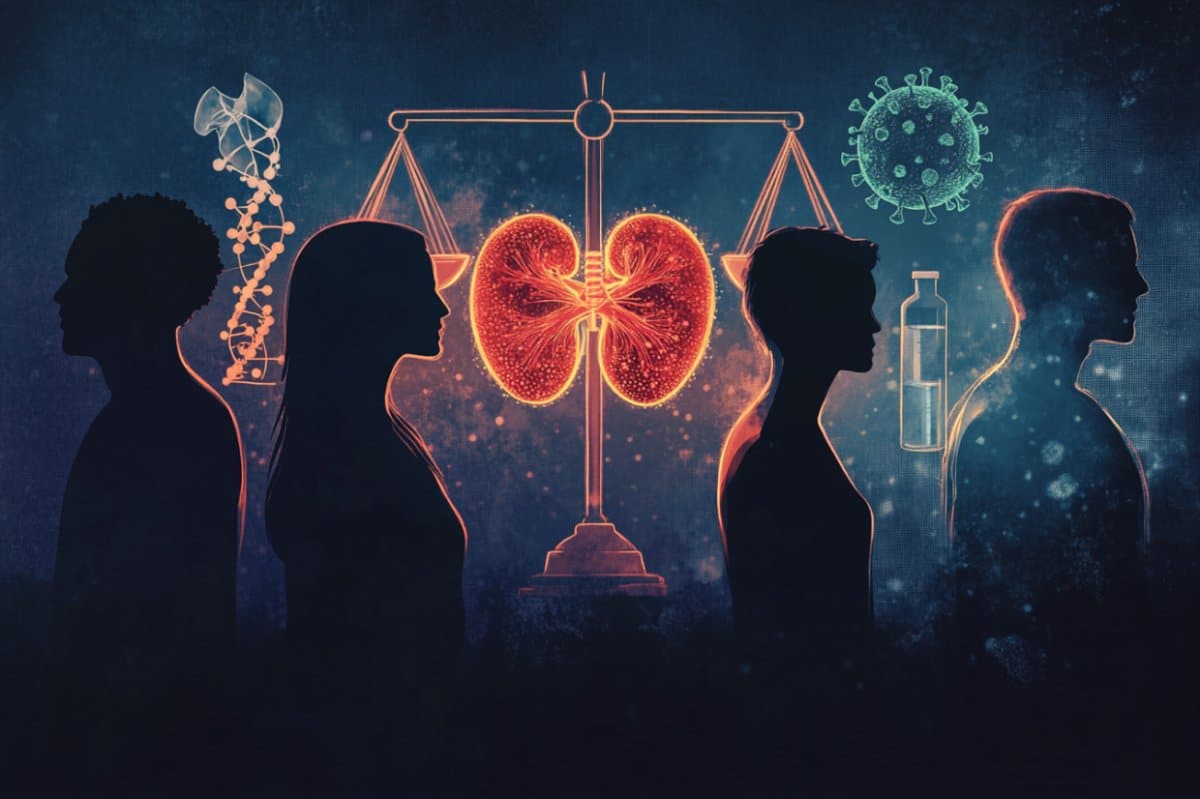Summary: Americans tend to judge organ transplant eligibility based on the cause of a person’s illness rather than their race or ethnicity. Survey participants consistently favored recipients whose conditions were seen as less self-inflicted, such as black lung disease from coal mining or genetic kidney failure, over those with alcohol use disorder or unvaccinated COVID-19 complications.
The findings highlight persistent stigmas around mental health and addiction, despite broader acceptance of these as medical conditions. Notably, race and ethnicity had little to no impact on public perception of transplant deservingness.
Key Facts:
- Judgment by Cause: People favored transplant candidates with occupational or genetic illness over those with conditions linked to behavior.
- Stigma Remains: Alcohol use disorder was consistently ranked lowest in transplant deservingness.
- No Racial Bias: Race and ethnicity did not significantly influence public perceptions of transplant eligibility.
Source: Texas A&M
Becoming an organ donor has never been easier. Registration is available online when renewing a driver’s license or, for iPhone users, through an app.
Still, the people who desperately need transplants far outnumber the available organs. Every eight minutes, someone in the United States is added to the waiting list and every day, 17 people in the United States die while waiting for a transplant.
“Given the staggering need, we were interested in whether Americans consider some recipients more deserving than others based on the reason behind the need for a transplant and whether a recipient’s race or ethnicity plays a role,” said Simon F. Haeder, PhD, a health policy analyst with the Texas A&M University School of Public Health who helped conduct the study, published in Social Science Quarterly.
Haeder said research on the topic is scarce and is limited in terms of organs and behaviors considered.
This study is comprehensive and is the first to assess organ failure facilitated by workplace injuries (such as exposure to coal dust that contributes to black lung disease) and mental health factors (such as alcohol use disorder).
For their study, Haeder and a colleague from Utah Valley University surveyed 4,177 adult American citizens in the United States from March 18 to April 18, 2022.
Participants provided opinions about four scenarios that featured individuals with distinct life circumstances and names that were racially/ethnically identifiable.
The individual in the first scenario had “a genetic condition that destroyed his kidneys” and necessitated a kidney transplant. The second had “worked in a coal mine all his life” and needed a lung transplant because of black lung disease.
The third was “very ill with COVID-19,” had not been vaccinated against COVID-19 and needed a lung transplant. And the fourth had alcohol use disorder and needed a liver transplant.
For insight into the influence of race and ethnicity on transplant eligibility, the researchers used identifiable names that had been pre-tested in another study: Ronny Nielsen (white), DeShawn Washington (Black), Luis Hernandez (Hispanic) and Yang Chen (Asian).
After viewing all four scenarios, respondents used a five-point Likert scale ranging from “definitely yes” to “definitely not” to indicate whether the characters should be eligible for a transplant.
They also answered survey questions that assessed their political ideologies (liberal or conservative) and racial resentment.
A comparison of predicted means to assess differences revealed that the public does consider the life circumstances of prospective organ recipients but not their race or ethnicity.
“Respondents were generally most supportive of the individual dealing with black lung disease, followed by the individual with kidney disease and the COVID-19 patient and finally, the individual dealing with alcohol use disorder,” Haeder said.
“The public generally establishes a clear ranking of potential transplant candidates based on the circumstances that led to their transplant needs,” Haeder said.
“The most prominent findings were the substantial support for individuals dealing with black lung disease, which often outscored all other individuals, and the support for individuals with genetic kidney disease over both individuals dealing with COVID-19 and alcohol use disorder.”
Haeder said liberals and respondents low in racial resentment generally did not show meaningful differences between the individual dealing with alcohol use disorder and the unvaccinated COVID-19 patient, while conservatives and those with high racial resentments did.
“One finding that stood out related to the individuals dealing with alcohol use disorder,” Haeder said. “While this condition is accepted as a disease, the individuals with this disorder consistently were found least deserving of a transplant in our study, indicating a lingering stigma.”
The lack of findings related to racial and ethnic differences were also noteworthy, he said, noting that in cases where differences were identified, they appeared to slightly favor racial and ethnic minorities.
“The larger question here is whether and how public attitudes should be included in transplant allocations,” Haeder said.
“On the one hand, better aligning allocation decisions with public opinion might lead more people to become donors, but on the other hand, the scarcity of organs means that rules for their use are critically important.”
Haeder said the study’s findings might lead to more opportunities for increasing the number of organs for transplant or to developing innovative approaches to the organ shortage.
About this psychology and organ transplantation research news
Author: Lesley Henton
Source: Texas A&M
Contact: Lesley Henton – Texas A&M
Image: The image is credited to Neuroscience News
Original Research: Open access.
“Who’s to Blame? How Recipient Deservingness Influences Attitudes About Access to the Organ Transplants” by Simon F. Haeder et al. Social Science Quarterly
Abstract
Who’s to Blame? How Recipient Deservingness Influences Attitudes About Access to the Organ Transplants
Objective
The United States continues to experience a severe shortage of organs available for transplant. Do Americans differentiate between who should and should not get an organ transplant based on the extent to which their situation might be attributed to internal or external factors? And how do race and ethnicity affect these attitudes?
Methods
We surveyed 4177 Americans from March 18 to April 18, 2022, to explore this issue. The survey contained a vignette-based experiment that introduced respondents to individuals with four distinct life circumstances. We also relied on racially/ethnically identifiable names. We relied on comparisons of predicted means to assess differences.
Results
We found that public attitudes are shaped by assessments of the life circumstances of potential transplant recipients, with important nuances for various subgroups. We generally did not find any differentiation based on the race/ethnicity of the vignette.
Conclusion
More work is needed to assess whether and how public attitudes should be included in decisions about transplant allocation.







